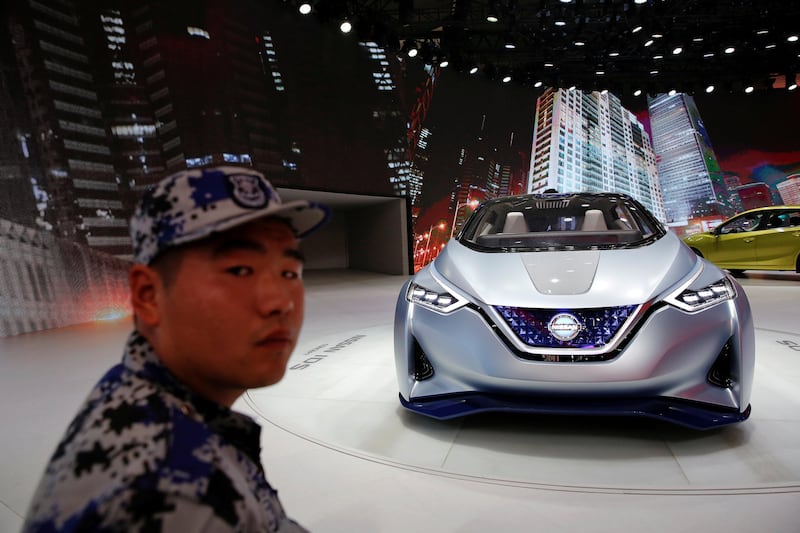Nissan Motor said it will suspend all local car production for Japan from today as the company’s fallout from a lapse in vehicle quality inspection worsens.
Nissan made the announcement in a statement distributed at its head office in Yokohama Thursday. A third-party team found that some plants transferred final vehicle inspection check items from the final vehicle inspection line to other lines, and as a result employees who were not internally registered as final vehicle inspectors performed final vehicle inspections, Nissan said.
_____________
Read more:
Corporate scandals drag Japan Inc's reputation through the mud
Japan's kei cars losing steam despite local appeal
Fujairah hosts launch of new Nissan Pathfinder
_____________
Nissan is calling back 1.16 million cars made and sold in Japan between January 2014 and September 2017 for inspection, after the government found uncertified inspectors approved vehicle quality at its domestic plants. The incident, likely to cost the company US$222 million, has become the first big test for the chief executiveHiroto Saikawa, who took over the top job from Carlos Ghosn in April.
Mr Saikawa said on October 2 he will personally investigate to get to the bottom of the issue before deciding who should bear responsibility for the “shocking” lapse.
Nissan said this month there have been instances of unauthorised inspectors, who usually work under the supervision of a certified inspector, working alone and stamping final inspection paperwork. There were also multiple copies of such stamps used for paperwork for vehicles for the Japanese market, it said.
Vehicles exported from Japan are not involved in the recall as the certificate is a Japan-specific requirement by the ministry, Nissan has said.
After the initial revelation, uncertified workers continued to perform some of the duties on some 3,800 vehicles at the Shonan plant of Nissan Shatai, a Nissan affiliate. Shipping of cars from the unit was suspended starting Oct. 11 before resuming Oct. 16, according to a Nissan spokesman.





